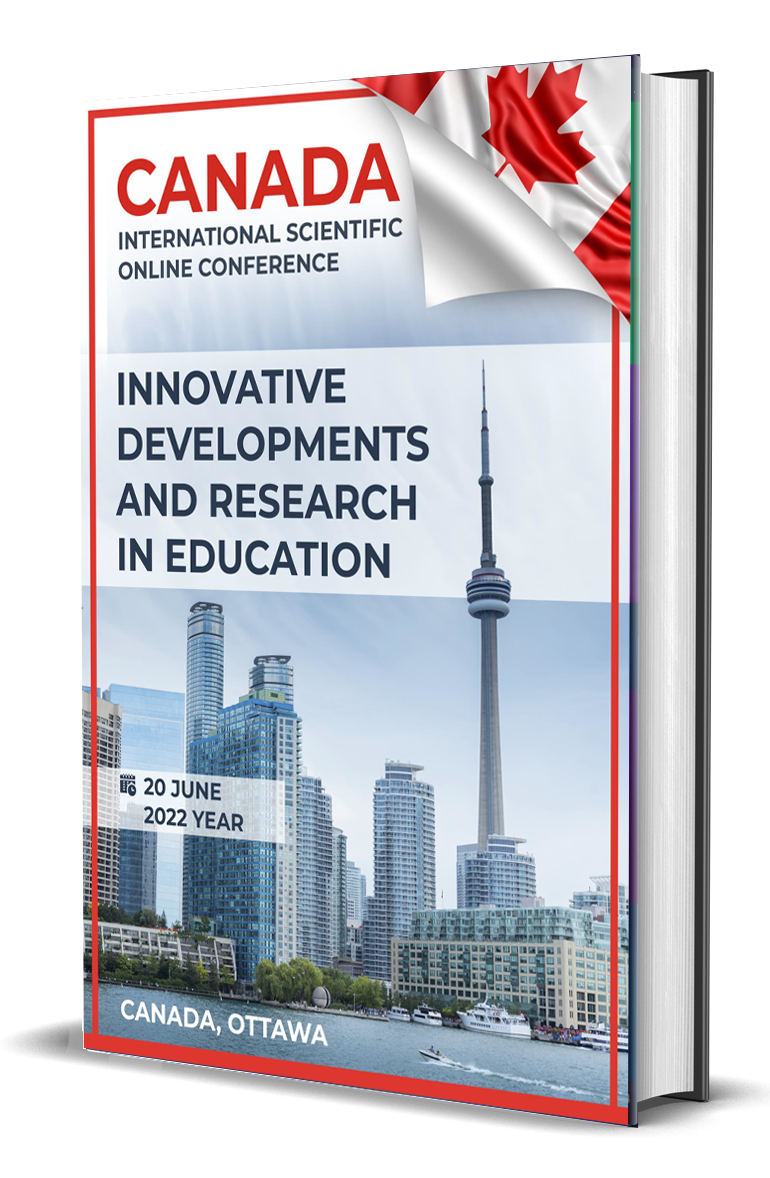“CULTURALLY RESPONSIVE TEACHING IN ENGLISH LANGUANGE INSTRUCTION”
Keywords:
culture responsive teaching, new paradigm, English education, Innovative learning strategy, student-centered, teacher-centered.Abstract
This article explores the integration of culture-responsive teaching in English learning within the context of the new paradigm in education. As education systems become increasingly diverse and multicultural, there is a growing recognition of the importance of incorporating students' cultural backgrounds and experiences into the learning process. The new paradigm in education emphasizes a student-centered approach, where the focus is on promoting inclusivity, equity, and cultural competence in the classroom. Through a qualitative research design, this study examines the implementation of culture-responsive teaching in English language classrooms in a secondary school setting. Data were collected through classroom observations and
interviews with teachers. The research aimed to understand how culture- responsive teaching practices are incorporated into English language instruction and the impact on student engagement and language proficiency. The findings indicate that the integration of culture-responsive teaching in English learning enhances student motivation and fosters a positive learning environment. By incorporating culturally relevant content and instructional strategies, teachers can create meaningful connections between students' cultural backgrounds and the language they are learning. This approach promotes a deeper understanding of language concepts and fosters a sense of belonging among students from diverse cultural backgrounds.
References
Baker, T., & Nelson, R. E. (2005). Creating Something from Nothing: Resource Construction
through Entrepreneurial Bricolage. Administrative Science Quarterly, 50(3), 329–366.
https://doi.org/10.2189/asqu.2005.50.3.329
Barton, G. (2022). Culturally responsive and meaningful music education: Multimodality,
meaning-making, and communication in diverse learning contexts. Research Studies in
Music Education, 44(2), 345–362. https://doi.org/10.1177/1321103X211009323
Brdarić, H., & Juraj, J. (n.d.). The Importance of Teaching Culture in the Foreign Language
Classroom. https://urn.nsk.hr/urn:nbn:hr:142:727491
Creswell, J. W. (2013). Educational research: Planning, conducting, and evaluating
quantitative and qualitative research. Psychology, Vol.4 No.3A, 3–12.
Cruz, R. A. (2020). An Examination of Teachers’ Culturally Responsive Teaching Self-
Efficacy. Teacher Education and Special Education, 43(3), 197–214.
https://doi.org/10.1177/0888406419875194
Digitalcommons@hamline, D., & Taylor, A. (2020). INTEGRATING CULTURALLY
RELEVANT TEACHING STRATEGIES: INTEGRATING CULTURALLY RELEVANT
TEACHING STRATEGIES: PROFESSIONAL DEVELOPMENT FOR ELEMENTARY
CLASSROOM PROFESSIONAL DEVELOPMENT FOR ELEMENTARY CLASSROOM
TEACHERS TEACHERS. https://digitalcommons.hamline.edu/hse_cp
Ettekal, A. V. (2020). The Complexities of Culturally Responsive Organized Activities:
Latino Parents’ and Adolescents’ Perspectives. Journal of Adolescent Research, 35(3), 395–
426. https://doi.org/10.1177/0743558419864022
Gülteke, M., Tomul, E., & Korur, F. (2013). Mathematics Special Content Competencies of
Elementary School Teachers. Creative Education, 04(12), 1–10.
https://doi.org/10.4236/ce.2013.412A2001
Gustiwi, Y. (2017). Studi Tentang Penerapan Culturally Responsive Teaching untuk
Mengembangkan Soft Skills Siswa pada Materi Larutan Elektrolit Dan Redoks. . Universitas
Negeri Jakarta.
Irizarry, J. G., & Antrop-González, R. (2008). RicanStructing the Discourse and Promoting
School Success: Extending a Theory of Culturally Responsive Pedagogy for
DiaspoRicans. Hispanic Health Care International, 6(4), 172–184.
https://doi.org/10.1891/1540-4153.6.4.172
Kramsch, C. (2017). Cultura no ensino de língua estrangeira. Bakhtiniana: Revista de Estudos
Do Discurso, 12(3), 134–152. https://doi.org/10.1590/2176-457333606
Бобоев, Б. К., & Усмонов, О. К. ЁШ УРҒОЧИ БУЗОҚЛАРНИ ПАРВАРИШЛАШ ТЕХНОЛОГИЯСИ. O ‘ZBEKISTON AGRAR FANI XABARNOMASI, 65.
Boboev, B. K., & Mirzobiddinova, M. D. Q. (2022). YANGI INNOVATSION TEXNOLOGIYALAR ASOSIDA CHORVACHILIKNI RIVOJLANTIRISH ISTIQBOLLARI. Academic research in educational sciences, (Conference), 11-15.
Jamolov, R., Boboyev, B., & Mo‘ydinova, Z. (2022). WORKS DONE IN THE FAMILIES OF BEES IN AUTUMN. Science and Innovation, 1(7), 38-42.
Jamolov, R., Boboyev, B., & Mo‘ydinova, Z. (2022). WORKS DONE IN THE FAMILIES OF BEES IN AUTUMN. Science and Innovation, 1(7), 38-42.
Куччиев, О. Р., Бобоев, Б. К., & Эшматова, Ш. И. (2023). ЕНГИЛ ТИПДА ҚУРИЛГАН БИНОДА СУТДОР ЭЧКИЛАРНИ АСРАШ ВА ОЗИҚЛАНТИРИШ ТЕХНОЛОГИЯСИ. Science and innovation, 2(Special Issue 6), 533-535.
Bahromjon, B., Jamolov, R. Q., & Xayitboeva, G. Q. (2023). ONA ASALARINI YETISHTIRISH UCHUN ISHLATILADIGAN MUM KOSACHALARNI TAYYORLASH. Science and innovation, 2(Special Issue 6), 185-188.
Kamilovich, U. O., Kenjayevich, B. B., & O‘G‘Li, M. M. B. (2023). QORAMOLLARNI TO ‘G ‘RI HARAKATLANISHI MAHSULDORLIK GAROVIDIR. Science and innovation, 2(Special Issue 6), 376-380.
Boboyev, B. K., Jamolov, R. Q., & Abduvaliyev, B. (2023). THE PLACE WHERE THE MOTHER BEES ESCAPE (FERTILIZE) IN THE BEES. Science and innovation, 2(Special Issue 6), 304-307.
Jamolov, R., & Boboyev, B. (2023). FORMATION OF CONDITIONED AND UNCONDITIONED REFLEXES IN BEES AND ITS SIGNIFICANCE. Science and innovation, 2(D2), 143-148.
Boboyev, B. K., Qayumova, G. A., Raximov, X. R., & Soborova, S. D. (2023). ASALARI OILASINI ASAL OLISH MAVSUMIDAN KEIYIN RIVOJLANTIRISH TEXNOLOGIYASI. Science and innovation, 2(Special Issue 6), 691-693.
Botirjon o‘g‘li, M. (2023). QORAMOLLARNI TO ‘G ‘RI HARAKATLANISHI MAHSULDORLIK GAROVIDIR.
Boboyev, B. K., Jamolov, R. Q., Rahmonov, R. I., & Mirzobidinova, M. D. (2023). PREPARATION OF WAX CUPS USED FOR RAISING QUEEN BEES. Innovative Development in Educational Activities, 2(14), 81-85.
Бобоев, Б. К. (1995). Продуктивные качества черно-пестрого скота разных генотипов в зависимости от линейной принадлежности.
Zulfikorovych, Z. O., Abdullayevich, S. I., Khamalovich, Y. T., & Kenjaevich, B. B. (2022). CHANGES IN THE BEHAVIOR OF COWS IN CONNECTION WITH PASTURE AND LIVESTOCK FARMING CONDITIONS. NeuroQuantology, 20(11), 2440.






